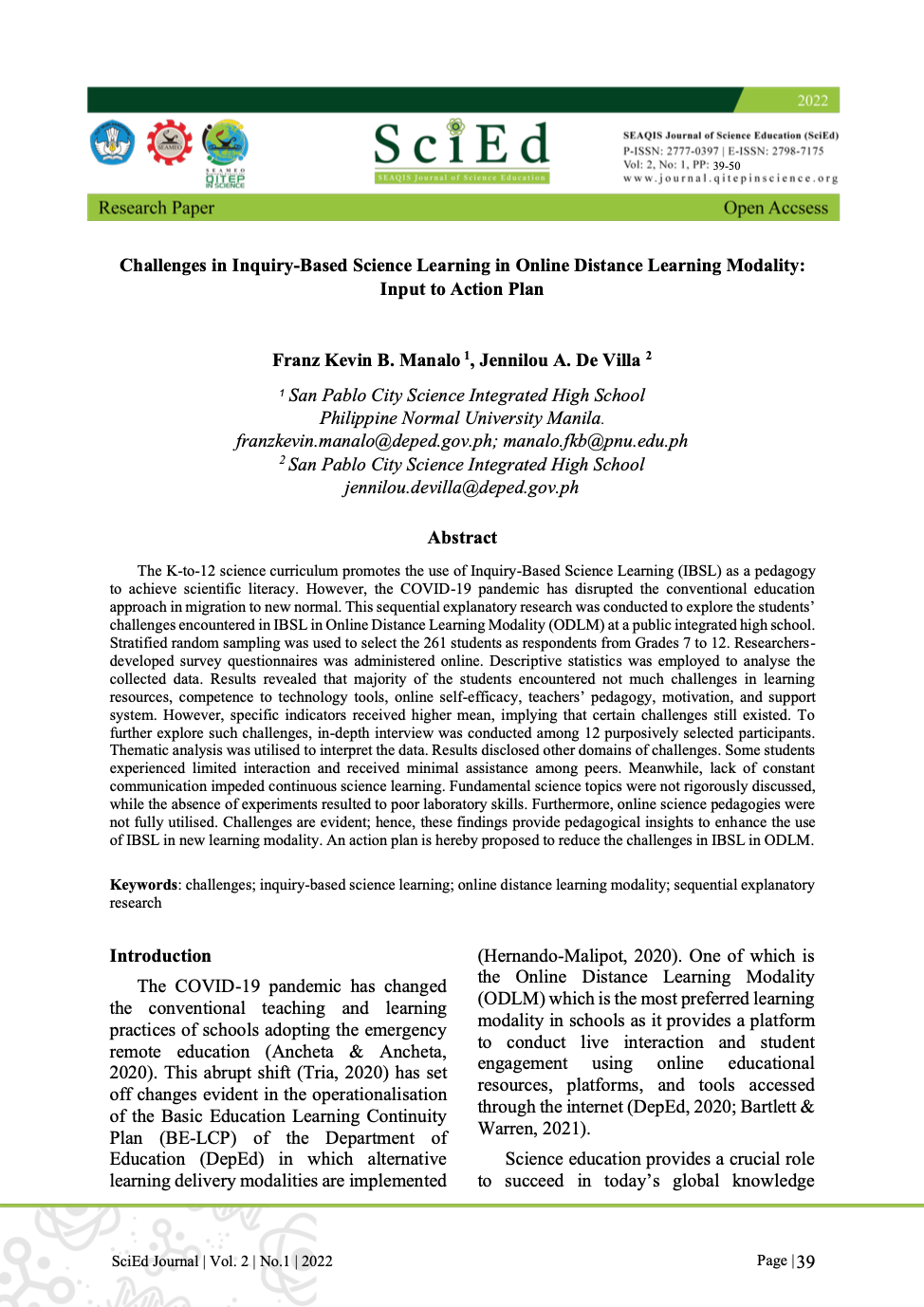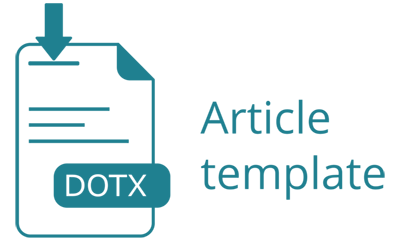Challenges in Inquiry-Based Science Learning in Online Distance Learning Modality: Input to Action Plan
DOI:
https://doi.org/10.58249/sjse.v2i01.42Keywords:
Sequential explanatory research, inquiry-based science learning, challenges, online distance learning modalityAbstract
The K-to-12 science curriculum promotes the use of Inquiry-Based Science Learning (IBSL) as a pedagogy to achieve scientific literacy. However, the COVID-19 pandemic has disrupted the conventional education approach in migration to new normal. This sequential explanatory research was conducted to explore the students’ challenges encountered in IBSL in Online Distance Learning Modality (ODLM) at a public integrated high school. Stratified random sampling was used to select the 261 students as respondents from Grades 7 to 12. Researchers-developed survey questionnaires was administered online. Descriptive statistics was employed to analyse the collected data. Results revealed that majority of the students encountered not much challenges in learning resources, competence to technology tools, online self-efficacy, teachers’ pedagogy, motivation, and support system. However, specific indicators received higher mean, implying that certain challenges still existed. To further explore such challenges, in-depth interview was conducted among 12 purposively selected participants. Thematic analysis was utilised to interpret the data. Results disclosed other domains of challenges. Some students experienced limited interaction and received minimal assistance among peers. Meanwhile, lack of constant communication impeded continuous science learning. Fundamental science topics were not rigorously discussed, while the absence of experiments resulted to poor laboratory skills. Furthermore, online science pedagogies were not fully utilised. Challenges are evident; hence, these findings provide pedagogical insights to enhance the use of IBSL in new learning modality. An action plan is hereby proposed to reduce the challenges in IBSL in ODLM.

Downloads
Published
Issue
Section
Citation Check
License

This work is licensed under a Creative Commons Attribution 4.0 International License.














